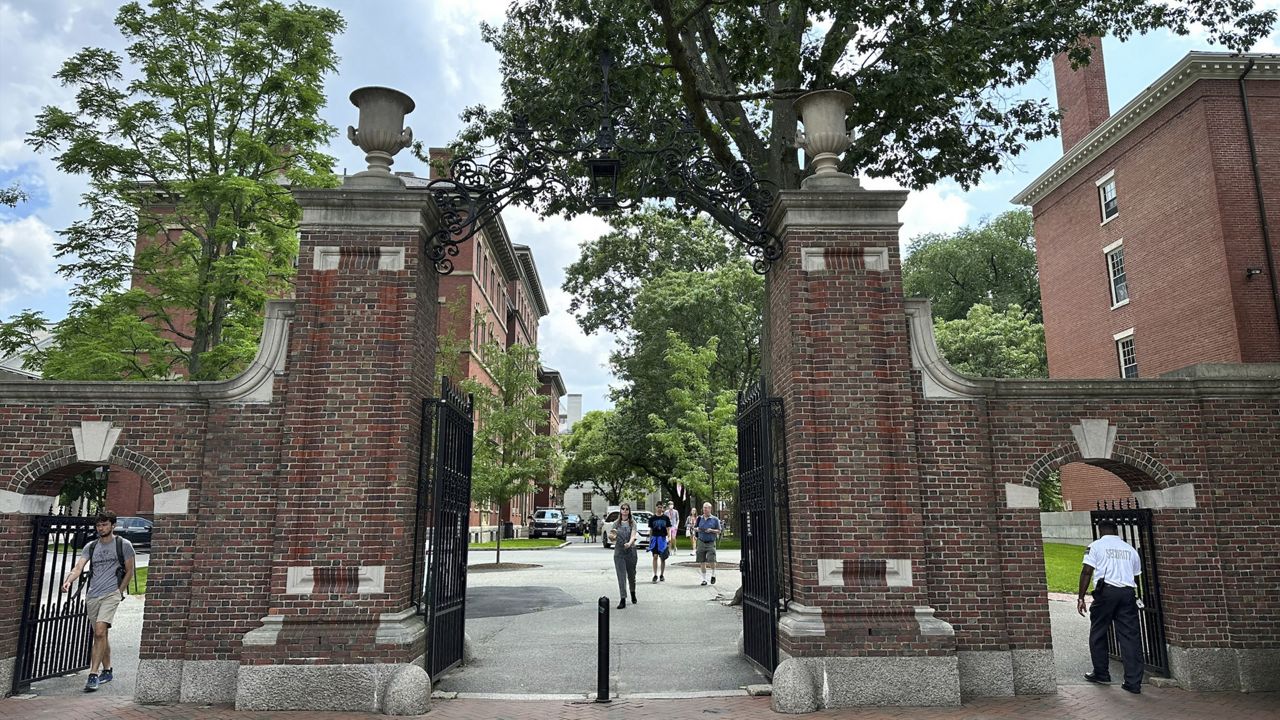A day after the Supreme Court ruled race can no longer be considered in college admissions, the Biden administration said it is working on ways to protect diversity on America’s campuses.
What You Need To Know
- A day after the Supreme Court ruled race can no longer be considered in college admissions, the Biden administration said Friday it is working on ways to protect diversity on America’s campuses
- President Joe Biden on Thursday urged universities to adopt a new admissions standard that would take into account the adversity that applicants have faced, their financial situation, their communities and their high schools
- Biden also said he is directing the Education Department to analyze ways to build diverse student bodies, including by reexamining legacy admissions
- The Education Department in July will convene a National Summit on Education Opportunity, in which university leaders will discuss plans on how to achieve diverse student bodies, and then issue a report
- Meanwhile, Biden is calling on Congress to increase the government’s investment in historically Black colleges and universities and minority-serving institutions
Education Secretary Miguel Cardona on Friday called the ruling ending affirmative action policies “another blow for equal opportunity.”
“The decision can have devastating consequences for students of color who continue to face inequities in education and college preparation that directly result from the lasting legacies of segregation and outright discrimination in everything from employment to housing to criminal justice,” he told reporters.
“We can't pretend that inequities don't exist,” Cardona added. “We can't pretend that students are all at the same starting gate. Some have to work twice as hard to make it to the starting line. We must work intentionally at every level to resolve those inequities.”
The education secretary added: “Campus communities should reflect the beautiful diversity of our country. … This is so important to our nation's future.”
After the ruling was announced Thursday, President Joe Biden said in a speech: “We cannot let this decision be the last word. While the court can render a decision, it cannot change what America stands for.”
Biden urged universities to adopt a new admissions standard that would take into account the adversity that applicants have faced, their financial situation, their communities and their high schools.
“When a poor kid — maybe the first in their family to go to college — gets the same grades and test scores as a wealthy kid whose whole family has gone to the most elite colleges in the country and whose path has been a lot easier, well, the kid who faced tougher challenges has demonstrated more grit, more determination,” Biden argued. “And that should be a factor that colleges should take into account in admissions.”
Biden also said he is directing the Education Department to analyze ways to build diverse student bodies, including by reexamining legacy admissions — the practice of accepting students because their relatives attended the same school.
“We know legacy admissions tend to ensure that there's less diversity, less racial diversity in schools,” Neera Tanden, Biden’s domestic policy adviser, told reporters. “And so that is a practice that I think we all believe colleges — and the president believes — colleges should examine.”
But Tanden noted that the Biden administration cannot mandate any actions by colleges because they are private institutions or controlled by states.
“We have limited abilities to mandate actions — in fact, we can't really mandate — but it is important for the president to speak to it,” Tanden said.
In addition, the Education Department in July will convene a National Summit on Education Opportunity, in which university leaders will discuss plans on how to achieve diverse student bodies.
Cardona said the department plans to issue a report by September on “elevating promising admission practices to build inclusive, diverse student bodies.” The report will draw on what is learned during the summit as well as available research.
“As we review the ruling and chart a path forward, our commitment to educational opportunity for all Americans is unshaken, and our efforts to promote diversity in higher education is undeterred,” he said.
Meanwhile, Biden is calling on Congress to increase the government’s investment in historically Black colleges and universities and minority-serving institutions, Tanden said.
After Michigan and California banned affirmative action in college admissions, the percentage of Black and Hispanic students at more selective schools fell significantly.
The Biden administration has already delivered nearly $6 billion to support HBCUs.
“We want to ensure that the leaders of tomorrow represent the great diversity of our country, and HBCUs and MSIs have been fantastic wellsprings of that leadership,” Tanden said.
The Biden administration also said it is working with colleges and universities to clarify which admissions practices remain legal, increasing transparency in college admissions and enrollment practices, and supporting states in analyzing data to increase access to higher education for underserved communities.



